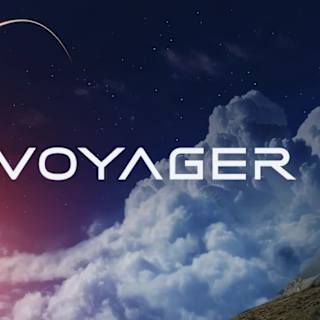Voyager has mulled going public for years, ultimately choosing a longer, traditional IPO route over merging with a publicly traded special purpose acquisition company, or SPAC. Credit: NYSE
TAMPA, Fla. — Voyager Technologies debuted on the New York Stock Exchange June 11, raising nearly $383 million in an upsized IPO that investors hope will spur more space-focused companies to go public.
The six-year-old provider of mission-critical space and defense technology solutions sold 12.35 million shares at $31 each, pricing above the $26–$29 range it marketed last week. The Denver-based company had initially planned to offer 11 million shares.
Underwriters also have a 30-day option to purchase up to 1.85 million additional shares of the company’s Class A common stock, up from 1.65 million, trading under the ticker symbol VOYG.
“We believe this successful listing may pave the way for a wave of public offerings from other high-quality space companies,” said Rob Desborough, managing director of Seraphim Space Investment Trust and an early Voyager investor.
Desborough said companies also leveraging dual-use commercial/government technologies are in particular demand across the global space, defense and climate-related sectors.
“This listing may serve as a reference point for other space companies considering public offerings in the future,” he added.
California-based Karman Space & Defense, an integrated space systems manufacturer, began trading on the NYSE in February, but space-related listings have otherwise been sparse.
Space investors had anticipated an uptick in IPO activity earlier this year, driven in part by expectations of a more business-friendly regulatory environment under the Trump administration.
But ongoing geopolitical tensions and the threat of broad U.S. tariffs have led to volatile markets, tempering optimism even as IPO activity has begun to rebound in recent weeks.
Voyager plans to use its IPO proceeds to invest in research and development, acquisitions and other growth initiatives, including its highest-profile project Starlab, a commercial space station concept aiming to succeed the International Space Station.
Jason Rainbow writes about satellite telecom, finance and commercial markets for SpaceNews. He has spent more than a decade covering the global space industry as a business journalist. Previously, he was Group Editor-in-Chief for Finance Information Group,…
More by Jason Rainbow

